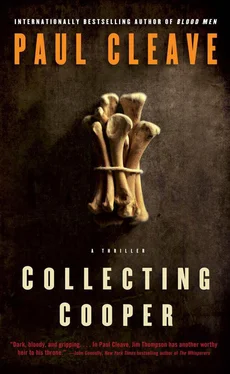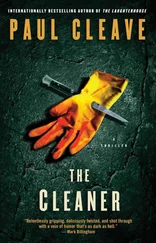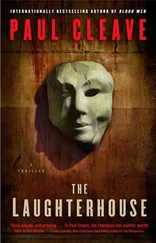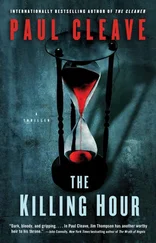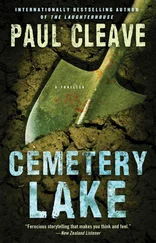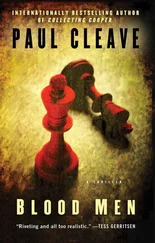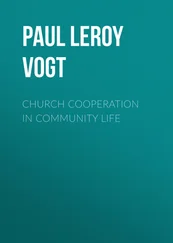Paul Cleave - Collecting Cooper
Здесь есть возможность читать онлайн «Paul Cleave - Collecting Cooper» весь текст электронной книги совершенно бесплатно (целиком полную версию без сокращений). В некоторых случаях можно слушать аудио, скачать через торрент в формате fb2 и присутствует краткое содержание. Год выпуска: 2011, ISBN: 2011, Издательство: Atria Books, Жанр: Триллер, на английском языке. Описание произведения, (предисловие) а так же отзывы посетителей доступны на портале библиотеки ЛибКат.
- Название:Collecting Cooper
- Автор:
- Издательство:Atria Books
- Жанр:
- Год:2011
- ISBN:9781439189627
- Рейтинг книги:3 / 5. Голосов: 1
-
Избранное:Добавить в избранное
- Отзывы:
-
Ваша оценка:
- 60
- 1
- 2
- 3
- 4
- 5
Collecting Cooper: краткое содержание, описание и аннотация
Предлагаем к чтению аннотацию, описание, краткое содержание или предисловие (зависит от того, что написал сам автор книги «Collecting Cooper»). Если вы не нашли необходимую информацию о книге — напишите в комментариях, мы постараемся отыскать её.
Collecting Cooper — читать онлайн бесплатно полную книгу (весь текст) целиком
Ниже представлен текст книги, разбитый по страницам. Система сохранения места последней прочитанной страницы, позволяет с удобством читать онлайн бесплатно книгу «Collecting Cooper», без необходимости каждый раз заново искать на чём Вы остановились. Поставьте закладку, и сможете в любой момент перейти на страницу, на которой закончили чтение.
Интервал:
Закладка:
I clean up the dishes and come back into the living room. The news has ended, replaced by a breakfast show. A woman in her forties is dressed like a woman in her twenties, she’s sitting on a bright red couch all relaxed with her arm propped up along the top of it, and sitting opposite her on another bright red couch is a man in a pin-striped suit with slicked-back hair and teeth so white there must be some supernatural element involved. The man’s name is Jonas Jones, and I used to run into him a lot when I was on the force. He’s a psychic who tries to scavenge information from the police department so he can make what he likes to call his in-tune psychic readings. You know there’s something wrong with the country when somebody green-lights the kind of show tailor-made for Jonas Jones-this one a reality TV show where psychics, including Jones, solve crimes. Not once have any of their insights led to an arrest. They like to hold clothing or keys or puppies that belonged to the victims, they like to sit in a dim room with a few candles, they close their eyes and tilt their heads slightly and crease their brows as they connect to a different plane of consciousness before spewing forth their predictions, putting on a show, never giving a damn about who they are hurting, each of them about as psychic as a brick. Jonas Jones has earned a pretty good living from this sham. He wrote a book, then another, and somehow people keep buying them, not caring that he’s exploiting real victims and their real pain, capitalizing on those who have died at the hands of somebody else. The author bio overlooks the fact that ten years ago Jonas Jones was a used-car dealer who filed for bankruptcy after two sexual harassment lawsuits were filed against him.
I turn up the volume.
“. . police can only do so much, which is why there’s always going to be a need for people with skills such as myself, ” he says.
“ I have to say, I love the show, it always gives me goose bumps seeing you work,” she says, “and I especially love your new book, ” she adds, leaning forward before sweeping her hair back and giving him the look a hungry man would give a pizza.
“Thank you, Laura, that’s always nice to hear, ” he says, his teeth flashing at her. “It’s available now and if you buy it today through my website you’ll receive a ten percent discount, or twenty percent if you buy two. It does, as you well know, Laura, make a wonderful gift.”
“It certainly does, Jonas. I know if I had a man in my life I’d certainly be buying one for him,” she says, and it doesn’t take a psychic to see she’s interested in him. “It appeals to everybody.” I roll my eyes and can’t decide between reaching for the remote or a vomit bag, and during my indecision she throws another line at Jonas and it’s an interesting one. “ Now, you were telling me before the show you know something about Emma Green, the young Christchurch girl that’s gone missing.”
“Yes, yes, a very sad case I’m afraid.”
Well that’s the only thing he’s ever gotten right.
“Christchurch is becoming renown for that kind of thing,” she tells him. “In fact, the police now refer to the city as ‘Crime’ church.”
“As well they should,” he says, and that’s the second thing he’s gotten right. He’s on a roll. That means I should hear him out.
“What can you tell us about Emma going missing? ”
An image of Emma Green comes up on a big screen in the background. She’s smiling. There are extra arms and shoulders to the sides, friends or family cropped out of the picture. The photo looks recent. There’s some generic greenery behind her, a tree or some shrubs.
“Not missing,” he says, “she was abducted.”
“And you think she’s still alive?”
Jonas looks glum at the same time still managing to show his teeth. It’s a look he must have practiced in the mirror, back when he was selling used cars and telling his customers there was nothing he could do about the faulty water pump on the car they just bought. Copies of his book are standing on a small coffee table between him and his host, a bunch of flowers behind them, everything arranged just so.
“Unfortunately no,” he says, playing the percentages. That’s what psychics do. They read the situation and go with the statistics. A young girl goes missing in Christchurch, then the statistics say she’s been abducted. They say she’s dead. And assholes like Jonas Jones come along and use that to promote their new book. The plane of consciousness he’s on with these in-tune readings of his has his bank balance on it too. I turn off the TV before he can say another word.
I sit back down in front of the computer and go through the same information I found last night. Pamela Deans was fifty-eight years old, and for the last three years worked at the Christchurch Public Hospital. Before that, she spent twenty-five years working at Grover Hills, a mental institution built outside of Christchurch during the First World War. Joshua Grover was a businessman who made most of his money importing mining equipment into the country back when people were flocking to the south island searching for gold. Grover had three sons, the oldest was nineteen years old when he killed another schoolboy. The problem was Grover’s son had the mental capacity of a five-year-old. Back then there was no room for sympathy in the justice system, and Grover fought hard to keep his son alive but failed, and for the first time since making his money Grover found there were some things that couldn’t be bought. What he could do was make a difference. Within months of his son being hanged, he petitioned for and finally won the right to build a mental institution where people like his son could be contained. He was granted the right, as long as the institution was well outside the city limits where the mentally ill could be swept under the carpet. Over the years it became one of a handful of institutions, all of them flourishing until, over the last few years, one by one they were shut down, the costs too high and the funds to run them put to use elsewhere by the city council, money spent on trees, on roads and recycling, money being spent trying to solve the teenage drinking epidemic rather than being spent on keeping the mentally dangerous at bay. Patients were kicked to the curb and told to fend for themselves, many with nowhere to go, all of them with instructions that no matter what, they must keep taking their medications. They spilled back into society, those who went on to kill would wind up in jail, but of course it was always too late, the damage was done.
For a quarter of a century Pamela Deans worked with these people, and then three years ago Grover Hills closed its doors and hung up a Closed for Business sign.
For nearly thirty years Cooper Riley has studied serial killers and murderers. Along with psychology, he has taught about them at Canterbury University for fifteen years. Some of the cases he speaks about happened here in Christchurch. He studied people who were mad, and Pamela Deans looked after people who were mad.
The connection this morning is just as thin as last night-but it’s all there is.
I ring Emma Green’s boyfriend, tell him that I don’t have any news yet about Emma, and then ask him if he knows anything about Grover Hills.
“Like what?”
“Have you heard of it?”
“Yeah, it closed down a few years ago, right?”
“Right. Has Professor Riley ever mentioned it?”
“Not really. I think it’s something he covers in later years if you start moving from psychology to criminology.”
Читать дальшеИнтервал:
Закладка:
Похожие книги на «Collecting Cooper»
Представляем Вашему вниманию похожие книги на «Collecting Cooper» списком для выбора. Мы отобрали схожую по названию и смыслу литературу в надежде предоставить читателям больше вариантов отыскать новые, интересные, ещё непрочитанные произведения.
Обсуждение, отзывы о книге «Collecting Cooper» и просто собственные мнения читателей. Оставьте ваши комментарии, напишите, что Вы думаете о произведении, его смысле или главных героях. Укажите что конкретно понравилось, а что нет, и почему Вы так считаете.
